Etta James
Etta James

Etta James, born Jamesetta Hawkins on January 25, 1938, and passing away on January 20, 2012, was a highly acclaimed American singer with a versatile range that spanned various genres such as gospel, blues, jazz, R&B, rock and roll, and soul. Her musical journey began in 1954, and she rose to fame with a string of hits that included "The Wallflower," "At Last," "Tell Mama," "Something's Got a Hold on Me," and "I'd Rather Go Blind."
James faced numerous personal challenges throughout her life, including struggles with heroin addiction, severe physical abuse, and periods of incarceration. Despite these difficulties, she staged a remarkable musical comeback in the late 1980s with the release of the album "Seven Year Itch." This resurgence in her career attested to her enduring talent and resilience in the face of adversity.
Etta James left an indelible mark on the music industry with her deep and soulful voice, seamlessly blending rhythm and blues with rock and roll. Her contributions to the music world were recognized with numerous accolades. James won three Grammy Awards for her albums: in 2005 for Best Traditional Blues Album with "Blues to the Bone," in 2004 for Best Contemporary Blues Album with "Let's Roll," and in 1995 for Best Jazz Vocal Performance, Female with "Mystery Lady: Songs of Billie Holiday."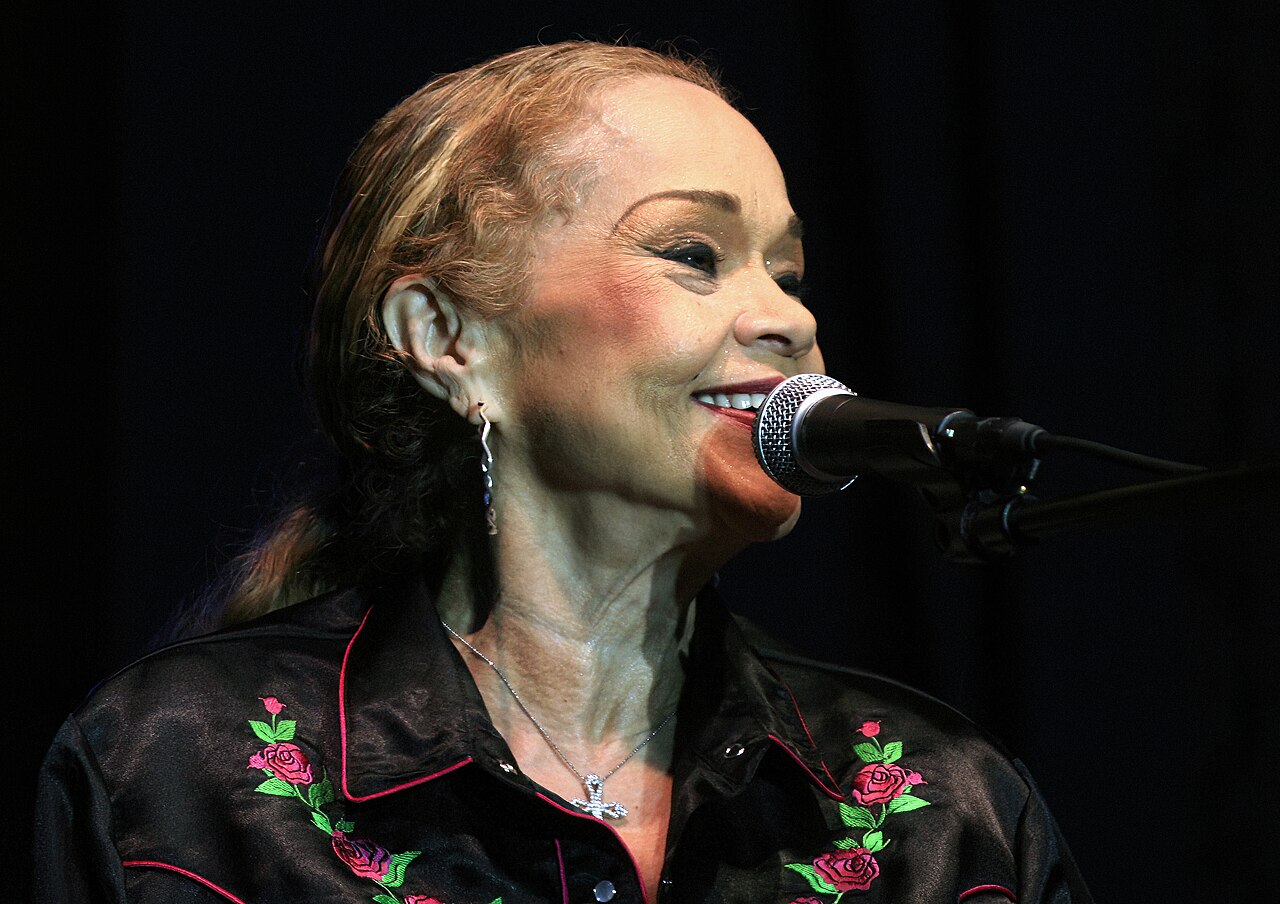
Her impact on the blues genre was further acknowledged with 17 Blues Music Awards. Etta James achieved significant milestones in her career, being inducted into the Rock and Roll Hall of Fame in 1993, the Grammy Hall of Fame in 1999, and the Blues Hall of Fame in 2001. In 2003, she received a Grammy Lifetime Achievement Award.
Her influential presence in the music world was solidified by rankings on prestigious lists, including Rolling Stone magazine's recognition of James as the 22nd Greatest Singer of All Time and the 62nd Greatest Artist of All Time. In 2015, Billboard's list of "The 35 Greatest R&B Artists Of All Time" also featured Etta James, highlighting her versatile and powerful vocals that interpreted a wide range of musical genres.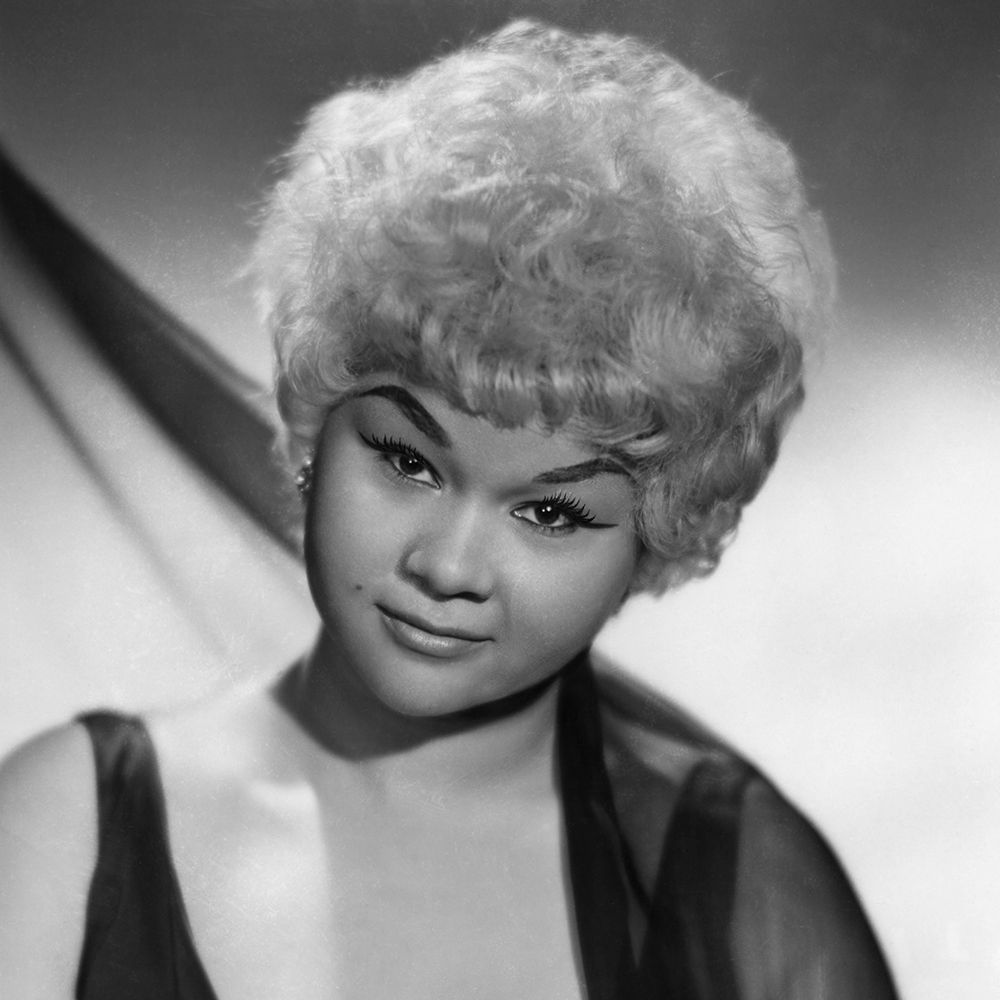
Etta James, born Jamesetta Hawkins on January 25, 1938, in Los Angeles, California, faced a challenging childhood. Her mother, Dorothy Hawkins, was only 14 at the time of Etta's birth. The identity of her father remains unknown, and there has been speculation that pool player Rudolf "Minnesota Fats" Wanderone could be her father, a possibility she contemplated after a brief meeting with him in 1987.
Etta James experienced a turbulent upbringing as her mother was frequently absent, involved in relationships with different men. James lived with a series of foster parents, most notably "Sarge" and "Mama" Lu. Her mother, whom James referred to as "the Mystery Lady," was often mysterious and distant. During her childhood, James found some stability by regularly attending a Baptist church while in the care of her grandparents. Despite the challenges, Etta James's early experiences contributed to shaping her resilience and musical journey.
Etta James's early exposure to professional vocal training began at the age of five under the guidance of James Earle Hines, the musical director of the Echoes of Eden choir at St. Paul Baptist Church in South-Central Los Angeles. Despite her young age, she became a soloist in the choir and showcased her strong voice on local radio stations. However, the training methods employed by Hines were physically demanding – he would punch her in the chest while she sang to encourage her to project her voice from her gut.
Unfortunately, James's experience with abuse extended beyond the choir director. Her foster father, known as Sarge, was also abusive. During drunken poker games at home, Sarge would wake James in the early morning hours and, through beatings, force her to sing for his friends. This traumatic experience had lasting effects on James, causing her difficulties with singing on demand throughout her career.
In 1950, after Mama Lu's death, Etta James's biological mother took her to the Fillmore district of San Francisco. Within a couple of years, James started listening to doo-wop music and was inspired to form a girl group called the Creolettes, named for the members' light-skinned complexions.
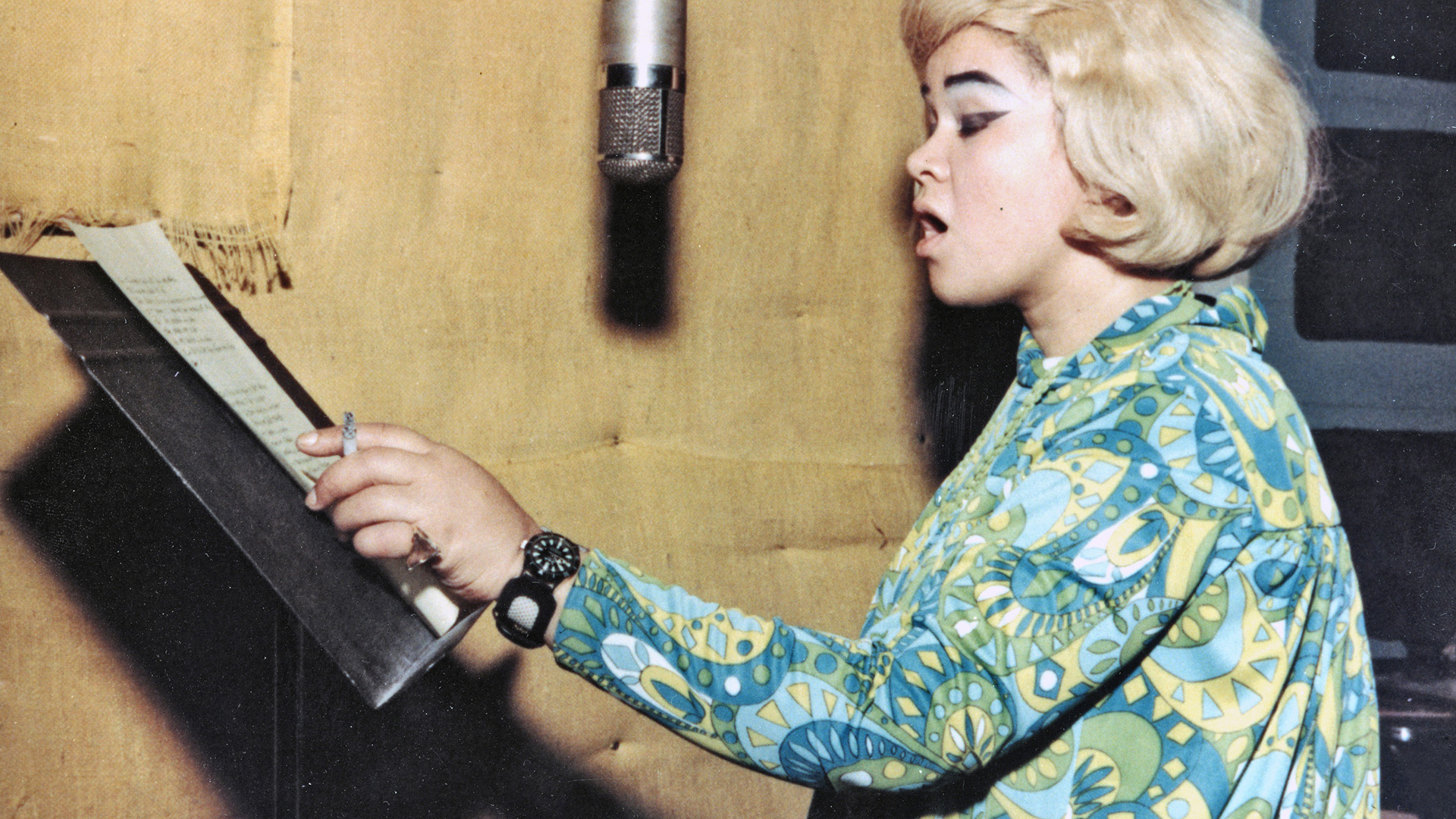
In 1954, James recorded and was credited as a co-author for "The Wallflower," originally titled "Roll with Me, Henry." The title change was made to avoid censorship (as "roll" implied sexual activity). Released in early 1955, the song reached number one on the Hot Rhythm & Blues Tracks chart in February 1955. Its success also earned the Peaches an opening spot on Little Richard's national tour.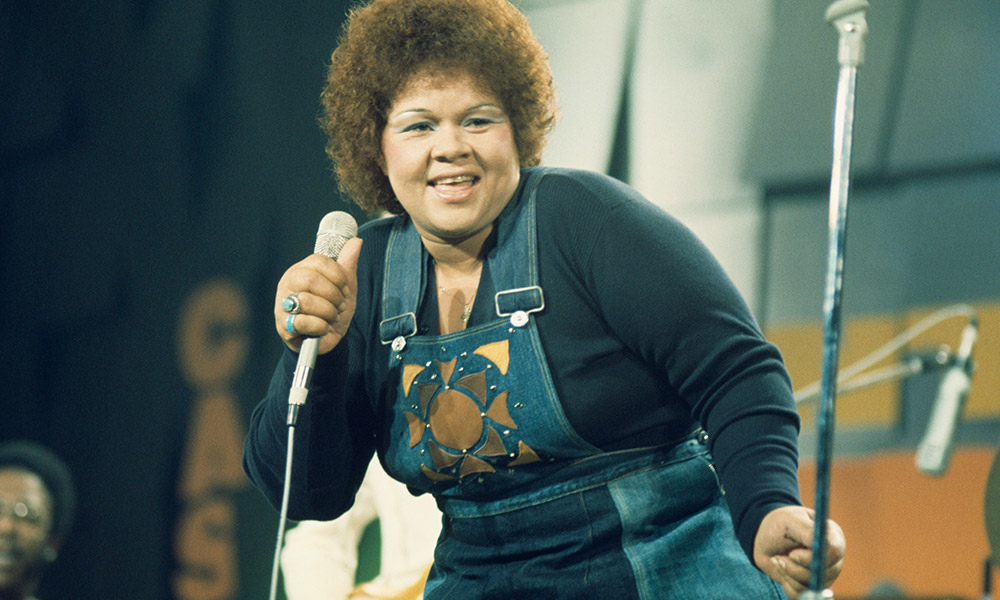
While Etta James was on tour with Little Richard, pop singer Georgia Gibbs recorded a version of her song and released it under the altered title "Dance With Me, Henry." The song became a crossover hit, reaching number one on the Billboard Hot 100, which upset James.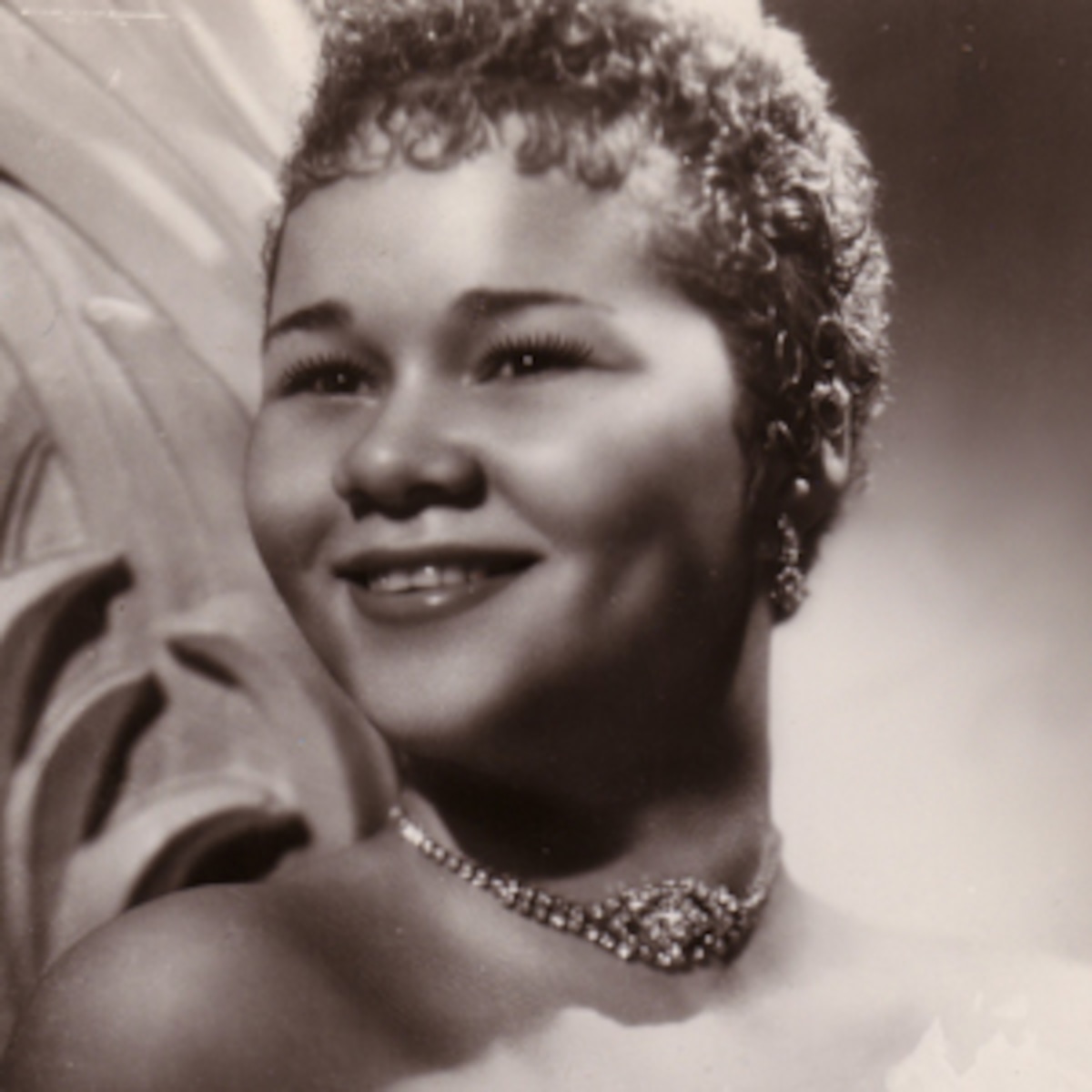
After parting ways with the Peaches, James achieved another R&B hit with "Good Rockin' Daddy" but struggled with subsequent releases. In 1960, when her contract with Modern Records was up for renewal, she signed with Chess Records, becoming one of the label's early stars. Around this time, she became romantically involved with Harvey Fuqua, the founder of the doo-wop group the Moonglows.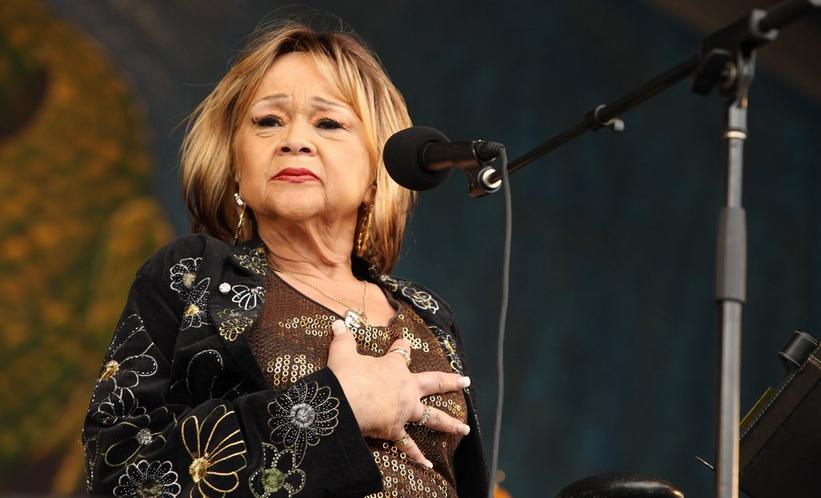
Bobby Murray, a musician who toured with James for over 20 years, mentioned in his writing that James had her first hit single at the age of 15 and dated B.B. King when she was 16. James believed that King's hit single "Sweet Sixteen" was about her. In the early months of 1955, she and the 19-year-old Elvis Presley, who was recording for Sun Studios and admired King, shared a bill in a large club just outside Memphis. In her autobiography, James expressed her admiration for Presley's manners and later discovered that Presley had moved her close friend Jackie Wilson from a substandard convalescent home to a better facility and covered all the expenses. Presley passed away a year later, but Wilson lived for another ten years in the care center that Presley had arranged.
Teaming up with Harvey Fuqua, Etta James recorded for Argo Records, later renamed Cadet Records, a label established by Chess Records. Her initial hit singles with Fuqua included "If I Can't Have You" and "Spoonful." James's first solo hit was the doo-wop-styled rhythm-and-blues song "All I Could Do Was Cry," which became a number two R&B hit.
Leonard Chess, co-founder of Chess Records, saw James as a potential classic ballad stylist with the ability to cross over to the pop charts. In line with this vision, James was surrounded with violins and other string instruments. Her first string-laden ballad, "My Dearest Darling," was recorded in May 1960 and reached the top five of the R&B chart. Additionally, James provided background vocals for her labelmate Chuck Berry on his track "Back in the U.S.A."
Etta James' debut album, "At Last!", was released in late 1960 and showcased a diverse selection of music, ranging from jazz standards to blues, doo-wop, and rhythm and blues (R&B). The album featured future classics such as "I Just Want to Make Love to You" and "A Sunday Kind of Love." In early 1961, James released what would become her signature song, "At Last," a rendition of the Glenn Miller tune. While the record didn't achieve the expected level of success, her version of the song has since become the most well-known.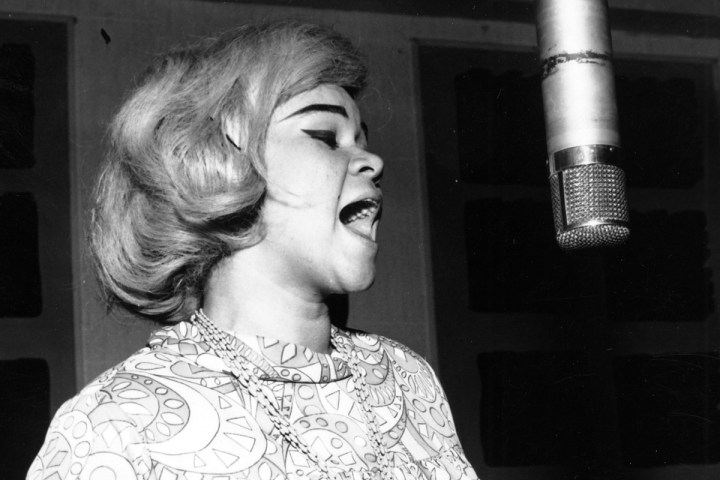
Following the release of "At Last," James released "Trust in Me," another track featuring string instruments. In the same year (1960), she also released her second studio album, "The Second Time Around." This album continued in the direction of her debut, covering jazz and pop standards and incorporating strings into many of the songs. It produced two hit singles, "Fool That I Am" and "Don't Cry Baby."
References
- James, Etta; Ritz, David (2003). Rage to Survive: The Etta James Story. Da Capo Press. p. 173. ISBN 9780306812620. Retrieved May 21, 2011.
- ^ Sonneborn, Liz (2002). A to Z of American Women in the Performing Arts. Infobase Publishing. p. 116. ISBN 9781438107905. Archived from the original on May 11, 2021. Retrieved May 22, 2011.
- ^ "Etta James Hospitalized, Tour Suspended" Archived January 13, 2009, at the Wayback Machine. DownBeat, July 27, 2007.
- a b "Etta James | American singer | Britannica". www.britannica.com. Archived from the original on March 31, 2022. Retrieved March 31, 2022.
- ^ "100 Greatest Singers of All Time". Rolling Stone. Archived from the original on October 24, 2012. Retrieved November 11, 2008.
- ^ "100 Greatest Artists of All Time". Rolling Stone. Archived from the original on December 22, 2010. Retrieved November 11, 2008.
^ "The 35 Greatest R&B Artists Of All Time". Billboard. Archived from the original on June 15, 2021. Retrieved June 12, 2021.












































